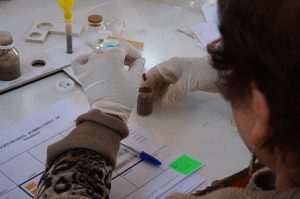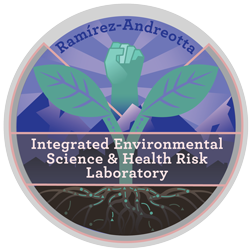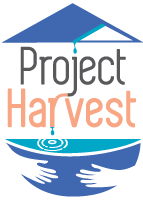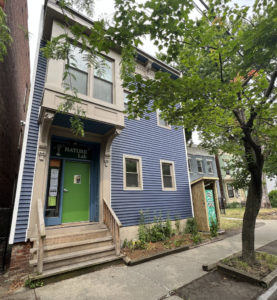Our Soil’s “DIY” methods and approach to community engagement grew out of team members’ work in other contexts. Here we highlight the work of Nuestros Suelos (the counterpart to Our Soil in Chile), Gardenroots, Project Harvest, and NATURE Lab.
Nuestros Suelos, based in Santiago, Chile, aims to design, test, and spread a tool for exploratory evaluation of degraded soils based on models of citizen science and low-cost environmental monitoring technology with a focus on participatory methodology, low-cost technologies, and games.

Pilot testing the Nuestros Suelos toolkit in Chile.
The project won the 2019 STS Making and Doing Award at the annual conference of the Society for Social Studies of Science (4S). The Nuestros Suelos toolkit contained prototype tests for the metals arsenic and copper as well as soil properties and nutrients such as pH, organic matter, carbonate, nitrogen, phosphorous, and potassium.
Gardenroots was originally created in response to home gardening concerns in the Dewey-Humboldt, AZ community over possible metal contamination from the neighboring Iron King Mine and Humboldt Smelter Superfund site.

The overall objective of Gardenroots was to determine soil and water quality and whether home garden vegetables grown in Dewey-Humboldt had elevated levels of arsenic. By building co-created public participation in a scientific research program, this project also looked to educate, build human capacity, and increase community networking in resource-related issues in the community. Full report here. Gardenroots began in 2010 and has now expanded across AZ and the U.S. and been implemented in nine different communities.
Project Harvest (PH) is a co-created citizen science program that aims to understand the fate and transport of potential pollutants in harvested water and how these possible pollutants might impact soil, plant and human health.

The University of Arizona’s PH, in partnership with the Sonora Environmental Research Institute, Inc., uses a peer education model and data sharing process to increase environmental health literacy in historically underrepresented populations. Participants learn to collect samples and to conduct DIY tests for arsenic and fecal contamination in water and soil.
Our Soil’s work in Troy, NY is rooted at NATURE Lab, part of the Sanctuary for Independent Media. NATURE Lab is a community laboratory aiming to teach science skills and study our local urban environment. This Biosafety-level 1 lab is open to the entire community, offering workshops and classes to teach science literacy and basic microbiology skills.

Young people engaged in a water testing project at NATURE Lab.
NATURE Lab provides space for in-house, hands-on research for environmental justice projects looking at water (with the Water Justice Lab), soil (with the Our Soil project), and air (with Lights Out Norlite). The Sanctuary for Independent Media has been an essential partner to the Our Soil project in Troy, contributing community organizing and outreach, media documentation, and a welcoming space in the North Central neighborhood.

NATURE Lab in Troy, New York.